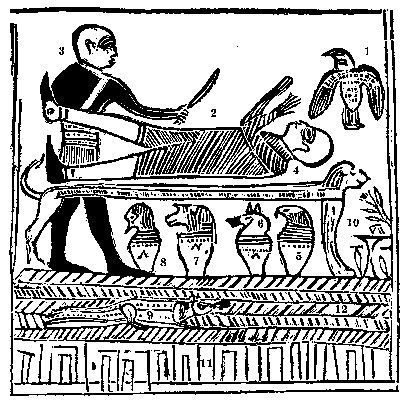
A video supplement created by Dr. Hales Swift for Come, Follow Me Lesson 34: “‘Ye Are the Body of Christ” is now available on the Interpreter Foundation website:
“The Importance of Christian Unity in 1 Corinthians”
***
From the invaluable Jeff Lindsay:
“Is There Direct Evidence that the Early Saints Had Heard of Champollion?”
“Dealing with “Friendly Fire” on the Book of Abraham”
***
From South America:
Her use of the term war is more than a bit over the top, but it’s an interesting article nonetheless:
“A year later, how successful is the war on the word ‘Mormon’?”
***
Part — only part — of an argument (regarding the Book of Mormon) that I’ve formulated for a future book:
First of all, the evidence strongly supports the traditional account in saying that the original manuscript was orally dictated. The kinds of errors that occur in the manuscript are clearly those that occur from a scribe mishearing, rather than from visually misreading while copying from another manuscript. (The printer’s manuscript, by contrast, shows precisely the types of anomalies that one would expect from a copyist’s errors.) Professor Skousen’s meticulous analysis even suggests that Joseph was working with up to twenty to thirty words at a time.[1]
It is apparent that Joseph could see the spelling of names on whatever it was that he was reading from.[2] When the scribe had written the text, he or she would evidently read it back to Joseph Smith for correction.[3] So the Prophet evidently had something with him from which he was dictating, and against which he could check what his scribes had written. But what was it? The witnesses are unanimous that he did not have any books or manuscripts or papers with him during the translation process, which involved lengthy periods of dictation. [4] In an interview with her son, Joseph Smith III, not long before she died, Emma Smith insisted that Joseph had no text with him during the work of translation:
Q.Had he not a book or manuscript from which he read, or dictated to you?
A.He had neither manuscript or book to read from.
Q.Could he not have had, and you not know it?
A.If he had anything of the kind he could not have concealed it from me.
Emma Smith could speak authoritatively regarding the period during which she herself served as scribe. But what about the much longer period when Oliver Cowdery was taking the dictation? While they were in Harmony, Pennsylvania—where most of the Book of Mormon text was committed to writing—Emma says that Joseph and Oliver were not far away from her:
- Where did father and Oliver Cowdery write?
- Oliver Cowdery and your father wrote in the room where I was at work.[5]
[1] Skousen, “Translating the Book of Mormon,” 67-75; Skousen, “How Joseph Smith Translated the Book of Mormon,” 25.
[2] Skousen, “Translating the Book of Mormon,” 75-82; Skousen, “How Joseph Smith Translated the Book of Mormon,” 27.
[3] Skousen, “Translating the Book of Mormon,” 82-84; Skousen, “How Joseph Smith Translated the Book of Mormon,” 27.
[4] See Skousen, “Translating the Book of Mormon,” 62; Skousen, “How Joseph Smith Translated the Book of Mormon,” 24.
[5] “Last Testimony of Sister Emma,” Saints’ Advocate 1/4 (October 1879): 50-52; Saints’ Herald 26/19 (1 October 1879): 290. [See originals.]












